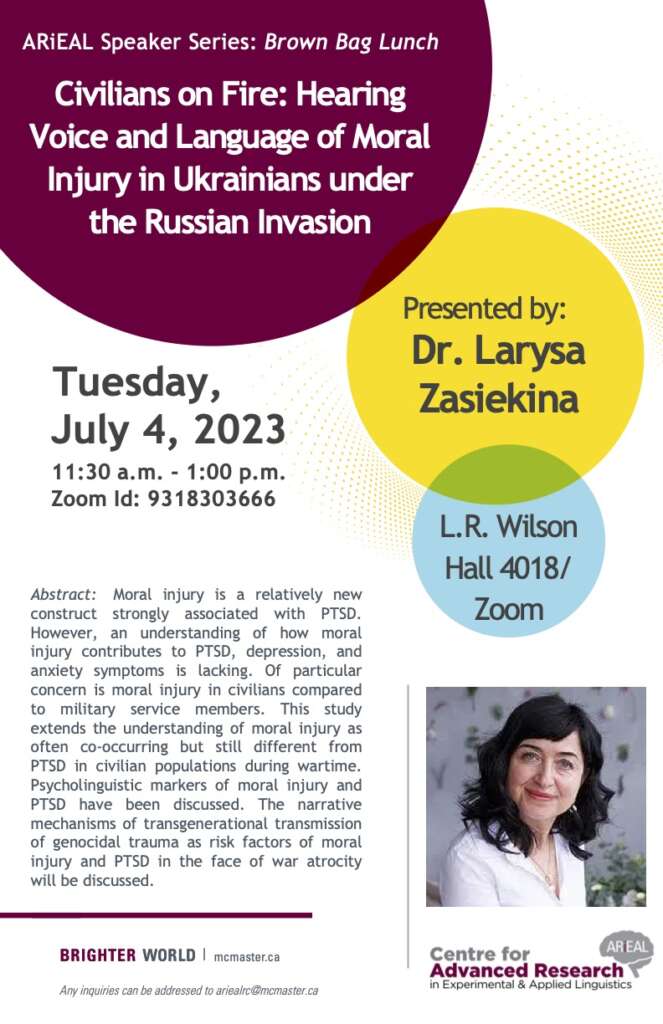We would like to invite you to our next speaker event:
Dr. Larysa Zasiekina will present her research on the impact of the Russian Invasion of Ukraine on the Ukrainian population titled “Civilians on Fire: Hearing Voice and Language of Moral Injury in Ukrainians under the Russian Invasion.” This study extends the understanding of moral injury as often co-occurring but still different from PTSD in civilian populations during wartime. Psycholinguistic markers of moral injury and PTSD have been discussed. The narrative mechanisms of transgenerational transmission of genocidal trauma as risk factors of moral injury and PTSD in the face of war atrocity will be discussed.
This event will take place on Tuesday, July 4, 2023, at 11:30am, at LRW 4018 or zoom(https://mcmaster.zoom.us/j/9318303666).
Dr. Larysa Zasiekina is a Professor of Clinical Psychology at Lesya Ukrainka Volyn National University and Director of the Ukrainian Psychotrauma Center, and currently holds a British Academy Researcher at Risk Fellowship, based at the Department of Psychology at the University of Cambridge. Professor Zasiekina is a leading expert in PTSD, moral injury, continuous traumatic stress, psycholinguistic and cultural aspects of the memory of trauma. Her focus is on the psychological inter-generational impact of genocide in Ukraine and Eastern Europe, including studies of survivors of the Holocaust and Holodomor (man-made famine in the Soviet Union targeting ethnic Ukrainians) and their children. Professor Zasiekina has published extensively on the language of trauma in high-impact journals in her field and spearheads international partnerships with scholars of psychotrauma at universities in Canada, Israel, Switzerland, the USA, and the UK. As a Fulbright Scholar (2010-2011 and 2015-2016), she explored the collective traumas of Native Americans and African Americans in the USA. Professor Zasiekina’s clinical perspective and experience in trauma-focused therapies are central to the current project at the University of Cambridge, “Exposure to Continuous Traumatic Stress and Its Consequences among Young Adults in Ukraine.”


